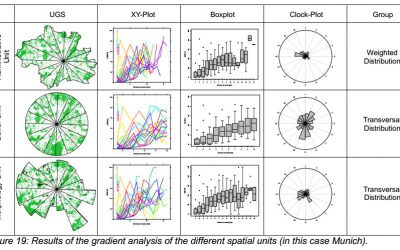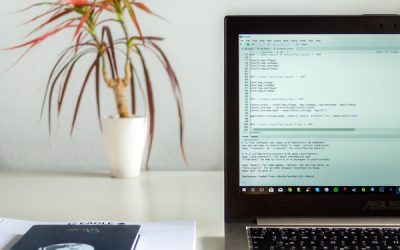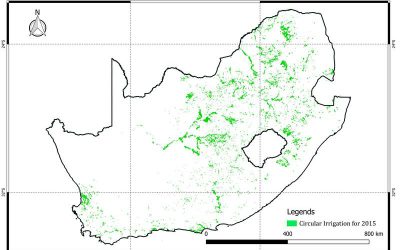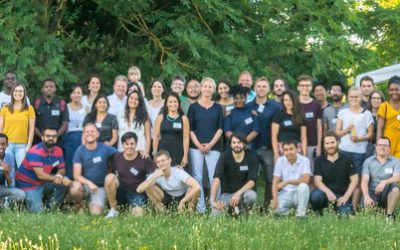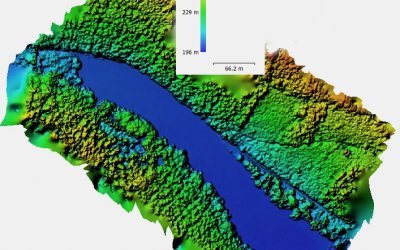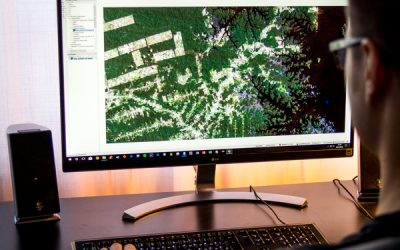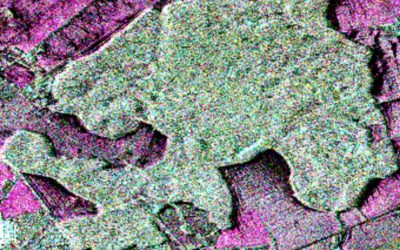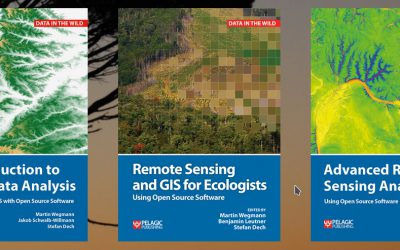Aim
Programming and geostatistics for environmental data analysis will be introduced. Advantages of coding approaches are discussed, theory of coding and statistics covered and practical examples provided.
Content
Theoretical basics and practical examples of programming and geostatistics focused on application within remote sensing and GIS are covered. Basic functionality such as script structure, implementation, functions, loops as well as programming syntax using the R language are introduced. Moreover, statistical basics related to environmental analysis are covered ranging from spatial queries to spatial models, e.g. classification and regression.
Coding
Software
Techniques
Content
General Course News and Updates
M.Sc. thesis presentation by Karsten Wiertz
Karsten Wiertz will present his M.Sc. thesis on Wednesday 14th at 11am in room 0.004 KW 86 with the title "Development of a semi-automatic remote sensing approach for change- detection of forest structures in Bialowieza Forest." From the abstract: The diversity of...
M.Sc. thesis defense by Sebastian Roersch
Sebastian Roersch will defend his thesis "Development of a semi-automated method to measure solar potential" next Wednesday (14th) at 10 am in 0.004 OKW 86. From his abstract: "In the second half of the 21st century, it will be decided how big the impact of climate...
M.Sc. presentation by Marina Reiter
Marina Reiter will present her M.Sc. thesis "Comparing Urban Green Spaces in German Cities Using Remote Sensing Data" on Thursday 8th of August at 11am in OKW 86, 0.004. Looking forward to a great presentation and lively discussion afterwards. From her abstract: "The...
EAGLE presentations
A wide range of internships, innovation labs and M.Sc. idea presentations will take place next Monday (July 29th) in room 0.004, OKW 86. Everybody is invited to join the presentations and discussions: Morning session (10am - 12pm): Katrin Hasenbein (internship)...
M.Sc. defense by Bharath Selvaraj
Bharath Selvaraj will defend his M.Sc. thesis on August 8th at 10am in room 0.004. From the abstract of his thesis: "Over the centuries, humanity made immeasurable progress in both technological innovation and medicine. This progress comes at the cost of environmental...
EAGLE Summer Dialogue 2019
Our 2019 EAGLE Summer Dialogue was a great success again and thanks a lot to all our EAGLE students who organised it. More than 100 participants enjoyed talks by Sandra Lohberger (RSS GmbH) and Alfred Schumm (WWF) who covered beside the technical aspects of their work...
Field Work Course 2019
Within the EAGLE program many Earth Observation applications and techniques are introduced and practically executed with quite some computer work. However, remote sensing research also requires a sound understanding of the study area. Field work is therefore a crucial...
Internship and Innovation Lab presentations
on Monday 15th of July at 10 a.m. in room 0.009 (OKW 86) we will have another series of internship and innovation lab presentations plus on M.Sc. idea presentation: (Internship) Marius Philipp -- "Mono Delta Monitoring System (MODES)" (Internship) Silvan...
Innovation Lab and thesis presentation
On Thursday 27th of June at 10am in room 0.004 (OKW 86) the following students will present their M.Sc. idea and their innovation lab outcome: Thesis idea presentation by Johni Miah:"Detecting and Assessing Ground Subsidence of Dhaka City, Bangladesh, using Synthetic...
textbooks on remote sensing
Our already published textbook on "Remote Sensing and GIS for Ecologists - using Open Source software" was very well perceived and we got very positive feedback. However, either an introduction or more advanced methods and data was asked for as well. Hence, we decided...



